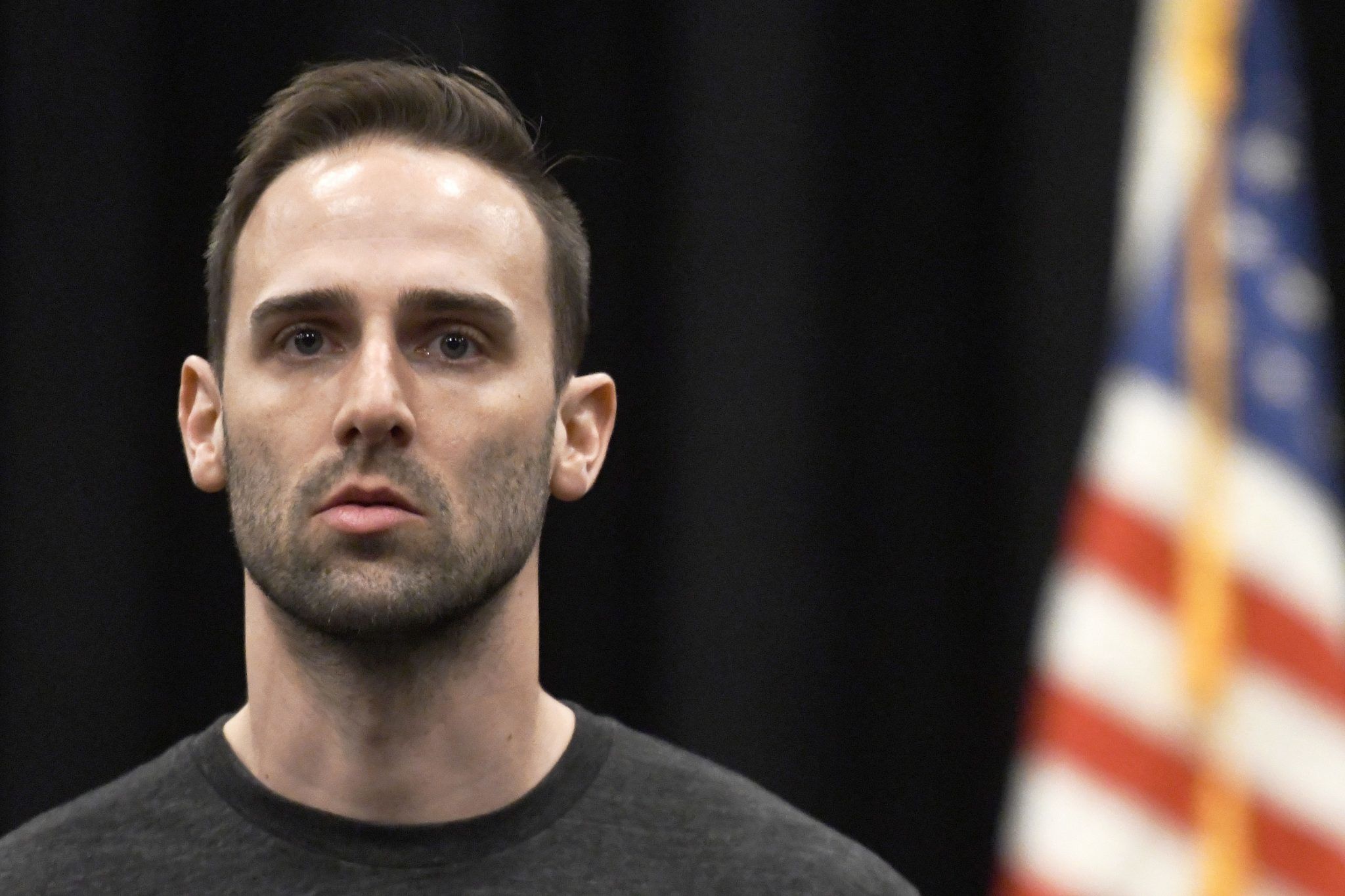Everyman Theatre’s ‘Book of Joseph’ offers a local story with universal meaning.
As the curtain rises on “The Book of Joseph,” audiences find themselves transported to a bookstore in Baltimore. An author named Richard delivers a talk about his book chronicling the heart-wrenching tale of his relatives trapped in Nazi-occupied Poland.
The intergenerational family saga is told through a cache of letters and documents stamped with swastikas that were discovered by Richard (played by Bruce Nelson) in a dusty, old suitcase in the attic of his parents’ house.
“Then,” says Noah Himmelstein, who directs the production, “the whole space transforms into 1939 Krakow.”
Written by award-winning playwright Karen Hartman, “The Book of Joseph” — which runs May 9 through June 10 at Everyman Theatre — is enjoying a homecoming of sorts. The play, which premiered last year at the Chicago Shakespeare Theater, is based on the real-life experiences of Guilford resident Richard S. Hollander and adapted from his 2007 book, “Every Day Lasts a Year: A Jewish Family’s Correspondence from Poland” (Cambridge University Press). The book was co-authored and edited by Christopher R. Browning and Nechama Tec.
A former Beth El Congregation president, Hollander, 69, is a journalist-turned-businessman. His family’s story, as related in his book and the play, began with a briefcase full of old letters from Eastern Europe discovered by accident in 1986 in the attic of Hollander’s late parents, Joseph and Vita.
“They are powerful, compelling letters of life under Nazi occupation,” Hollander told Jmore last year. “They all perished. Some went to Bergen-Belsen [concentration camp]. We believe some went to Auschwitz.”
The action in “The Book of Joseph” jumps from the United States to Poland and back again, from the 1930s and ‘40s to the present day, bringing together three generations of a family.
The play’s universal themes, says Jonathan K. Waller, Everyman’s managing director, “be they refugee or immigration issues, or loved ones discovering their roots, are a minefield of opportunities for community engagement.”
That’s where Everyman’s community engagement department comes into the picture. The department, created in 2015, aims to compel audiences to think beyond the walls of the theater, says Waller.
“If 250 people at each performance are moved by an experience and then just walk out the door, it’s a missed opportunity,” he says.
Headed by Brian Francoise, the department finds local groups that help bring context to the theater’s productions. In the case of “The Book of Joseph,” that means taking the play’s local reference point and relatable themes beyond the theater by collaborating with area Jewish organizations and schools.
The Jewish Museum of Maryland is organizing an exhibition through June 3 called “Giving Voice to the Hollander Family.” (In late April, Himmelstein and Hollander were scheduled to host an evening of scenes from the play and a discussion at the JMM.) The lobby display will highlight the original letters discovered by Hollander, says Joanna Church, the museum’s collections manager.
The pieces of original correspondence give the play an expanded dimension, she says. “Looking at the letters, you see these people and personalities on paper,” Church says. “It really hammers home that this happened to real people, this is a real story.”
Everyman also is working with Reservoir Hill’s Beth Am Synagogue to present a forum on refugees and immigrants on May 17 connected to the play. The gathering, according to Beth Am Executive Director Ted Merwin, will feature a panel of professionals from organizations that work with vulnerable groups to discuss how the Hollander family’s circumstances resonate in today’s world.
“Remembering what Jews suffered in the Holocaust helps us to empathize with those experiencing trauma today,” says Merwin.
A large component of Everyman’s outreach is the theater’s schools program. Nearly 450 city high school students attend Everyman’s plays throughout the season. Students participate in workshops at their schools before attending a matinee performance of each play, followed by discussions with actors, directors and production workers, says Brianna McCoy, Everyman’s director of education.
“Many high school kids struggle with not feeling heard,” she says. “They’ll relate to the themes the play presents.”
Specific to this play is Everyman’s collaboration with the Baltimore City Community College Refugee Youth Project, a year-round program in city schools in which Everyman’s teaching artists guide students to contemplate how they view themselves in the world.
“It’s a chance for them to explore their own histories, what they would choose to pass down to future generations,” says Jared Earley, Everyman’s marketing and media relations manager.
Himmelstein says he felt personally connected to “The Book of Joseph” after his first reading of the play. At the time, he had recently lost three grandparents and was grateful he persuaded them to share their life stories before they passed away.
“I felt a connection with the main character, trying to piece together things he knew about his relatives,” Himmelstein says. “He’s trying to connect the dots of these letters and leads us in one direction and another. It’s what we all do when we try to make sense of history and family.”
For information about “The Book of Joseph,” visit everymantheatre.org.
Martha Thomas is a Baltimore-based freelance writer.
See cast member Bari Hochwald on Weekend Agenda on Facebook Live May 11:





